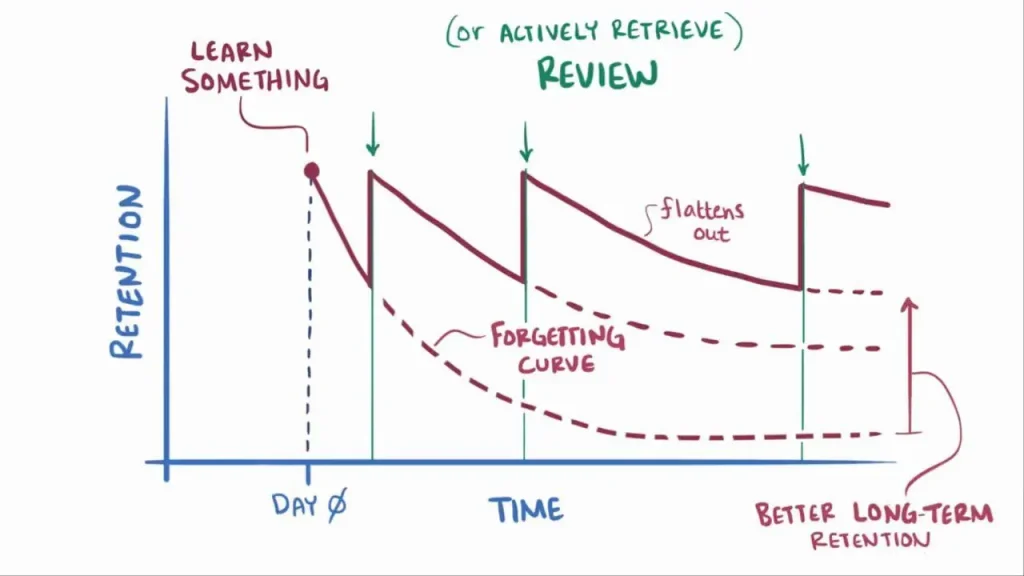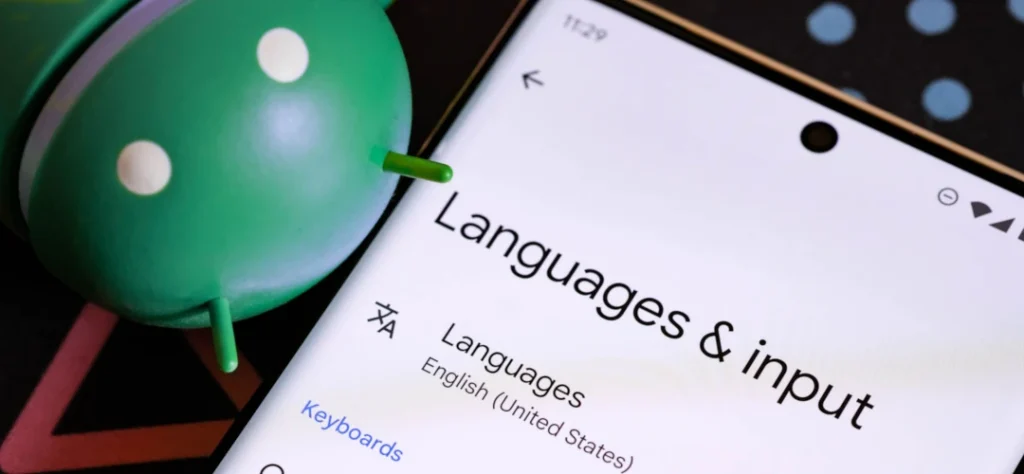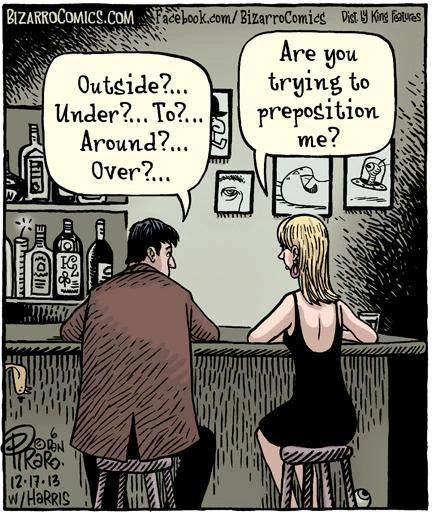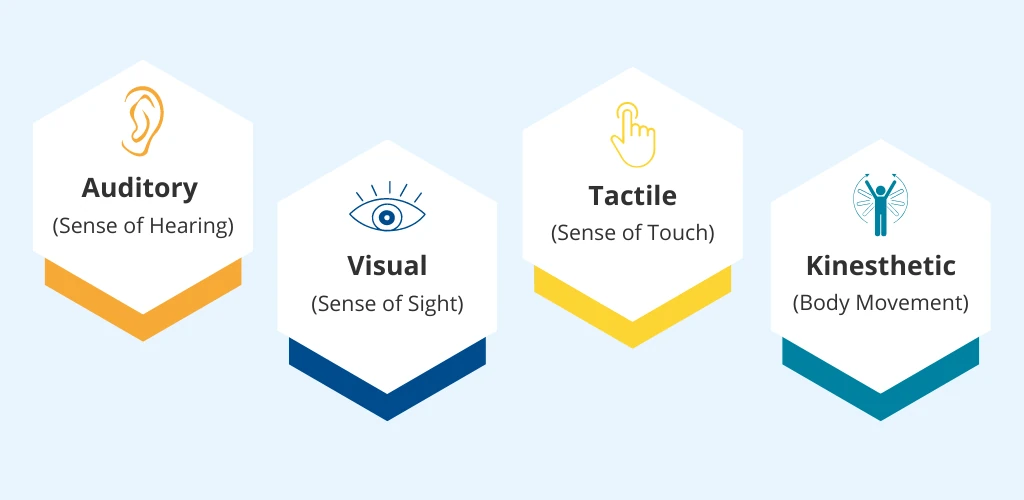Learning a new language can be exciting and rewarding, but one of the most common struggles is retaining vocabulary and being able to use it naturally in conversation. If you’ve ever felt like vocabulary words slip out of your mind as quickly as they enter, you’re not alone. The good news is, there are science-backed methods for not only remembering vocabulary but for also incorporating it into real-life use. Here, we’ll dive into effective strategies to help you learn, retain, and confidently use new words.
Why Vocabulary Lists Alone Aren’t Enough
Traditional vocabulary lists can be useful for quick exposure to new words. However, studies have shown that this approach lacks context, making it hard for the brain to retain and recall vocabulary during real-life interactions. A well-known study by Hermann Ebbinghaus on the “Forgetting Curve” demonstrated that without reinforcement, we forget 50% of new information within an hour of learning it. Overcoming this curve requires active, consistent reinforcement and contextual use.
So, how can you make vocabulary stick? Here are some science-backed techniques to help you not only remember words but to make them part of your everyday language toolkit.
1. Use Spaced Repetition for Long-Term Retention
Spaced Repetition is a proven technique that involves reviewing new information at increasing intervals over time, a concept based on Ebbinghaus’s findings. By spacing out review sessions (daily, then every few days, then weekly), the brain strengthens its neural pathways, making it easier to recall the information later.

How to Apply It:
- Use Spaced Repetition Apps: language learning apps like Aprelendo use this technique to schedule reviews based on your progress, ensuring you’re reminded to practice words at optimal intervals.
- Create Digital or Physical Flashcards: for each new word, use a flashcard system like Anki or physical cards, revisiting them as per a set schedule (e.g., Day 1, Day 3, Day 7, Day 14, etc.).
2. Contextual Learning: Associate Words with Real-Life Situations
Research shows that context helps our brains link new words with familiar information, making retention stronger. A 2022 study by van de Broek et al. published in Memory & Cognition found that learning words within sentences or scenes resulted in better recall than isolated word learning. This technique, called contextual learning, makes vocabulary more meaningful and easier to retrieve.

How to Apply It:
- Use Words in Sentences: when learning a new word, write out several sentences using it in different contexts. For example, if you’re learning the word “correr” (to run), try using it in sentences that apply to your daily life, like “Me gusta correr en el parque” (I like to run in the park).
- Immerse in Real-Life Scenarios: use vocabulary relevant to your activities. For example, if you’re grocery shopping, look up food-related terms or if you’re meeting new people, learn conversational phrases and practice them in real interactions.
3. Leverage Mnemonics and Visual Imagery for Stronger Recall
Mnemonics—creative memory aids—can make vocabulary recall much easier. By forming vivid mental images or connecting words to familiar concepts, you engage parts of the brain associated with memory and imagination, leading to stronger retention. Research published in Applied Cognitive Psychology confirms that mnemonic devices can significantly improve vocabulary recall, especially for beginner learners.

How to Apply It:
- Create Associations: if learning “gato” (cat in Spanish), imagine your own cat or a friend’s cat. Associating the word with something personal makes it stickier.
- Use Keyword Mnemonics: find a keyword in your language that sounds like the new word. For example, connect “gato” with “gate” in English and picture a cat sitting on a gate. This mental image can help you remember the word.
4. Engage in Active Recall to Strengthen Memory Pathways
Active recall is the process of actively trying to retrieve information from memory rather than passively reviewing it. Studies in memory psychology show that attempting to recall information without immediate prompts enhances neural pathways, strengthening long-term retention.

How to Apply It:
- Quiz Yourself: test your memory by recalling words without looking at your notes. Apps like Quizlet provide ways to do this through digital flashcards and quizzes.
- Teach Someone Else: studies show that explaining concepts helps reinforce them in our minds. Find a language buddy or family member and explain new words to them or use them in conversations, even if it’s a bit of a mix with your native language.
5. Incorporate New Words into Conversations Regularly
The most effective way to retain and use new vocabulary is through real-life practice. The “use it or lose it” principle applies here. Research in language acquisition shows that conversational practice, even if limited, reinforces memory through active, situational use.

How to Apply It:
- Daily Word Goals: aim to use three new words in conversations each day. These could be simple phrases you slip into daily exchanges.
- Practice with Native Speakers: apps like HelloTalk and Tandem connect you with native speakers who can engage with you in the language. You’ll get comfortable using vocabulary naturally, which will strengthen your recall.
6. Apply Visualization and Multi-Sensory Techniques
Memory research reveals that visualization—along with engaging multiple senses—helps in retaining information better. When you pair words with images, sounds, or even physical actions, the memory of these words is stored in several parts of the brain, creating a network of associations that’s easier to recall.

How to Apply It:
- Mind Mapping: for example, if you’re learning a set of kitchen vocabulary words, create a visual mind map with images or sketches of items like “tenedor” (fork) and “cuchara” (spoon) to help solidify their meanings.
- Act it Out: when learning action words, do the action! If you’re learning “saltar” (to jump), try actually jumping to help commit the word to memory through movement.
Final Thoughts: Mastering Vocabulary Beyond the List
Learning vocabulary is not about memorizing endless lists but rather about engaging with words actively, meaningfully, and repeatedly. Incorporating techniques like spaced repetition, active recall, and contextual learning can help these words stick, allowing you to confidently use them in real conversations. Embrace these proven strategies, and watch as vocabulary retention and usage become natural parts of your language learning journey.
Key Takeaways:
- Vocabulary Retention: rely on spaced repetition to review words at scientifically optimal intervals.
- Contextual Learning: use words in sentences or real-life situations to make them meaningful.
- Mnemonics: create vivid mental images to strengthen memory connections.
- Active Recall: quiz yourself regularly to reinforce neural pathways.
- Conversational Practice: engage in real conversations to solidify vocabulary usage.
- Multi-Sensory Learning: visualize, hear, and act out new words for a multi-sensory memory boost.
Ready to Start Retaining Words Like a Pro?
With these tips, vocabulary learning can become less of a chore and more of a rewarding journey. Start small, stay consistent, and make each word a part of your daily interactions. Before long, you’ll notice words that once slipped your mind are now part of your conversational arsenal.

Leave a Reply